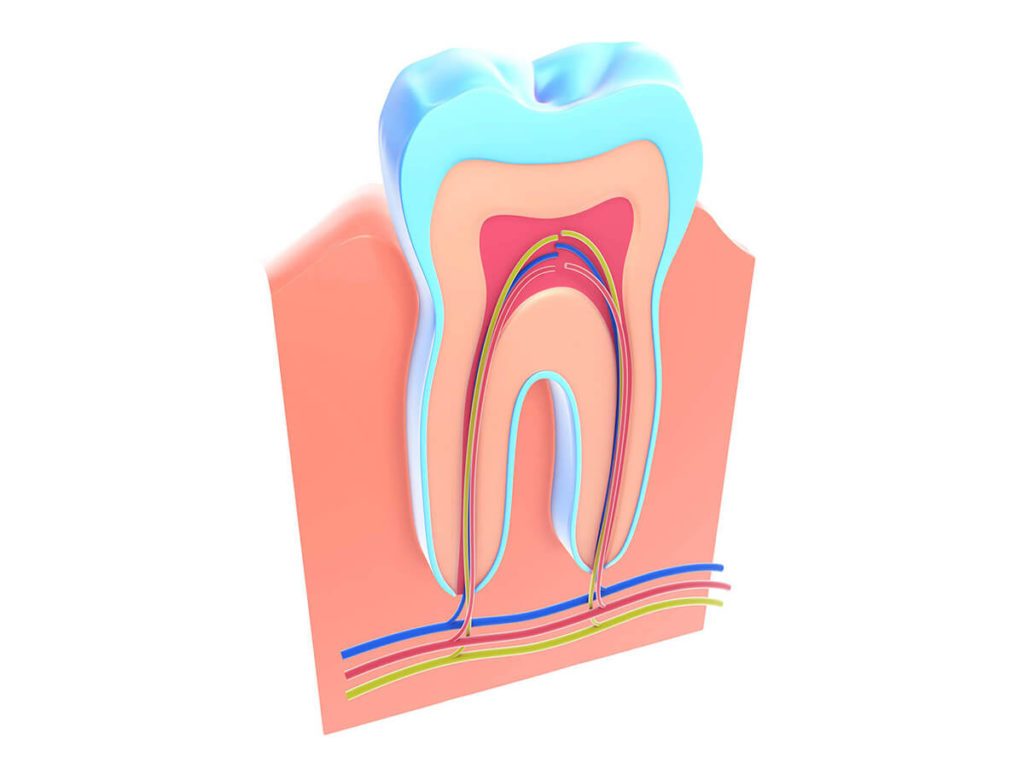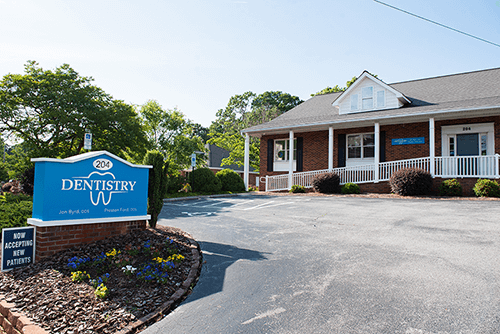Root Canal Treatment
Root canal treatment can save an infected tooth from otherwise certain extraction—it’s a proven procedure that will leave your mouth healthy and strong while restoring its natural appearance.
Root Canal Dentist in High Point, NC
The last thing we want is to see a patient in pain. If your teeth are hurting you, that means something is wrong. The sooner you get treated, the faster you can feel normal again.
Root canal treatment is an essential part of our restorative dentistry. During this process, we:
- Remove decay from your tooth
- Remove infected tissue from inside your tooth
- Refill your tooth with a special substance
- Cap your tooth with a filling and/or dental crown
By providing root canals in High Point, NC, we can save your tooth and prevent infection from spreading to other parts of your mouth. A root canal treatment could be the key to protecting your smile.

-
What is a root canal?
A root canal is a procedure to save a tooth when the tissue, blood vessels, and nerves inside a tooth have become inflamed. The dentist has to remove infected and diseased tissue to save the tooth and remove the pain. Then, the infected area is cleaned, and the canal inside is medicated so the surrounding area can heal.
Root Canal Symptoms
A patient suffering from an infected root canal will almost certainly recognize something wrong. They will usually be in severe pain and will notice the following symptoms:
- Severe and intense toothaches that won’t go away
- Sensitivity to hot and cold foods and drinks
- Swollen and tender lymph nodes
- Recurring abscesses on the gums
Generally, but not always, a crown must be placed after the root canal treatment to protect the tooth from further damage.
-
How long does a root canal take?
Root canal treatment starts with digital X-rays to determine the extent of the damage. Then, generally, sedation is provided for comfort as the dentist accesses the tooth’s inner structure from the top. They carefully clean out an infectious material to leave the tooth as a hollowed-out structure. Then, an antimicrobial liquid flushes the root canals down to the jawbone. The tooth is then treated with a medicated filling substance to offer support and strength and help the tooth heal promptly. To protect the tooth, a dental crown is placed over the structure to prevent fractures and breakages. This entire process takes 30 to 60 minutes to complete, on average. If you are having treatment on a larger tooth with multiple roots, it can take up to an hour and a half.
-
Do root canals hurt?
There is a common misconception that root canals are very painful. The root canal procedure isn’t usually more painful than a tooth filling. Dentists typically provide an anesthetic before the procedure, so there isn’t much discomfort during and a short while after.
After the procedure, some sensitivity and discomfort are common while the area around the root canal heals. Gums can become swollen or agitated during the procedure, resulting in mild pain or sensitivity. Pain and sensitivity should subside when the tooth is healed. After your treatment, your dentist will provide special instructions on caring for your newly treated tooth.
-
What are alternatives to root canal treatment?
Most people facing root canal treatment are curious whether alternative procedures are worth considering. Since endodontic therapy is regarded as a “last line of defense” for restoring your tooth, the only remaining option is to have your tooth extracted. Unfortunately, if there is an infection and treatment is not provided, you risk the infection spreading deeper. Getting a root canal is the only solution that treats the infection and allows the tooth to be kept in the mouth.
If you opt to have your tooth extracted, replacing it as soon as possible is still a concern. Otherwise, the extra space in your bite can throw off the alignment of your surrounding teeth. Two of the more common replacement options include a dental bridge or implant.
More questions?
If you have more questions about root canal treatment and the procedures used by High Point Dental Partners, please contact our office and we will be happy to discuss further.

